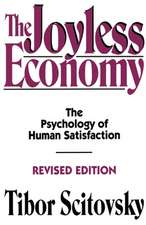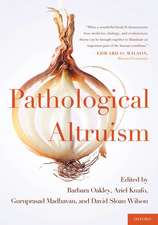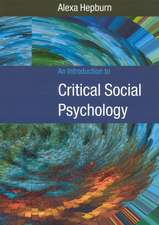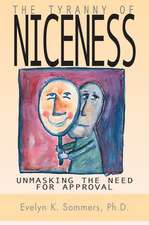Trust: A Very Short Introduction: Very Short Introductions
Autor Katherine Hawleyen Limba Engleză Paperback – 23 aug 2012
Din seria Very Short Introductions
-
 Preț: 56.70 lei
Preț: 56.70 lei -
 Preț: 47.19 lei
Preț: 47.19 lei -
 Preț: 56.45 lei
Preț: 56.45 lei - 5%
 Preț: 56.93 lei
Preț: 56.93 lei -
 Preț: 47.44 lei
Preț: 47.44 lei -
 Preț: 46.72 lei
Preț: 46.72 lei -
 Preț: 46.09 lei
Preț: 46.09 lei -
 Preț: 40.95 lei
Preț: 40.95 lei -
 Preț: 46.28 lei
Preț: 46.28 lei - 17%
 Preț: 51.70 lei
Preț: 51.70 lei - 18%
 Preț: 51.45 lei
Preț: 51.45 lei - 18%
 Preț: 51.54 lei
Preț: 51.54 lei - 17%
 Preț: 51.82 lei
Preț: 51.82 lei - 17%
 Preț: 52.08 lei
Preț: 52.08 lei - 17%
 Preț: 51.99 lei
Preț: 51.99 lei - 17%
 Preț: 52.16 lei
Preț: 52.16 lei - 17%
 Preț: 51.73 lei
Preț: 51.73 lei - 17%
 Preț: 52.08 lei
Preț: 52.08 lei - 18%
 Preț: 51.45 lei
Preț: 51.45 lei - 17%
 Preț: 52.26 lei
Preț: 52.26 lei - 17%
 Preț: 51.91 lei
Preț: 51.91 lei - 17%
 Preț: 51.73 lei
Preț: 51.73 lei - 18%
 Preț: 50.75 lei
Preț: 50.75 lei - 17%
 Preț: 51.79 lei
Preț: 51.79 lei - 18%
 Preț: 51.47 lei
Preț: 51.47 lei - 17%
 Preț: 51.63 lei
Preț: 51.63 lei - 30%
 Preț: 43.88 lei
Preț: 43.88 lei - 17%
 Preț: 51.63 lei
Preț: 51.63 lei -
 Preț: 67.31 lei
Preț: 67.31 lei - 17%
 Preț: 51.63 lei
Preț: 51.63 lei - 17%
 Preț: 51.91 lei
Preț: 51.91 lei - 17%
 Preț: 51.63 lei
Preț: 51.63 lei - 17%
 Preț: 51.82 lei
Preț: 51.82 lei - 17%
 Preț: 51.69 lei
Preț: 51.69 lei - 18%
 Preț: 51.28 lei
Preț: 51.28 lei - 17%
 Preț: 51.63 lei
Preț: 51.63 lei - 17%
 Preț: 51.63 lei
Preț: 51.63 lei - 17%
 Preț: 52.01 lei
Preț: 52.01 lei - 18%
 Preț: 51.36 lei
Preț: 51.36 lei - 18%
 Preț: 51.00 lei
Preț: 51.00 lei - 17%
 Preț: 52.08 lei
Preț: 52.08 lei - 18%
 Preț: 51.00 lei
Preț: 51.00 lei - 17%
 Preț: 52.11 lei
Preț: 52.11 lei - 18%
 Preț: 51.45 lei
Preț: 51.45 lei - 17%
 Preț: 51.82 lei
Preț: 51.82 lei - 17%
 Preț: 52.16 lei
Preț: 52.16 lei - 17%
 Preț: 52.04 lei
Preț: 52.04 lei - 17%
 Preț: 51.73 lei
Preț: 51.73 lei - 17%
 Preț: 52.43 lei
Preț: 52.43 lei - 17%
 Preț: 52.26 lei
Preț: 52.26 lei
Preț: 51.19 lei
Preț vechi: 62.29 lei
-18% Nou
Puncte Express: 77
Preț estimativ în valută:
9.80€ • 10.00$ • 8.25£
9.80€ • 10.00$ • 8.25£
Carte disponibilă
Livrare economică 25-31 ianuarie
Livrare express 21-25 ianuarie pentru 25.75 lei
Preluare comenzi: 021 569.72.76
Specificații
ISBN-13: 9780199697342
ISBN-10: 0199697345
Pagini: 144
Ilustrații: Two black and white illustrations
Dimensiuni: 113 x 174 x 8 mm
Greutate: 0.11 kg
Editura: Oxford University Press
Colecția OUP Oxford
Seria Very Short Introductions
Locul publicării:Oxford, United Kingdom
ISBN-10: 0199697345
Pagini: 144
Ilustrații: Two black and white illustrations
Dimensiuni: 113 x 174 x 8 mm
Greutate: 0.11 kg
Editura: Oxford University Press
Colecția OUP Oxford
Seria Very Short Introductions
Locul publicării:Oxford, United Kingdom
Notă biografică
Katherine Hawley is Professor of Philosophy at the University of St Andrews and Head of the School of Philosophical, Anthropological and Film Studies. She is the author of How Things Persist (OUP, 2001) and co-editor of Philosophy of Science Today (with Peter Clark, OUP, 2003).












